I love it when serendipity comes calling, and this week it did in the form of a kraal of South African visitors.
As a quick aside, I was pondering the best collective noun for South Africans, and it first led me unsurprisingly down the path of African animals.
A herd (elephant, antelope, buffalo) obviously would have worked well, but isn’t terribly flattering, I toyed with a coalition (cheetahs), a pride (lions) and given the skill these guys showed by finding this amazing part of Portugal all on their own, I almost settled on a shrewdness (of apes).
But given the campervan parked next to the house, and the existential threat from above which I shall get into shortly, the collective noun kraal sneaked it.
Friends of friends are great, and it seems friends of friends of friends make for a proper party...when collected in a kraal.
Firle’s great pals from Cape Town came to stay, and their great pals – who left the Cape to live in Devon just before COVID kicked in – just happened to be staying a six minute drive away, but they’d arrived a night early for their booking.
And so they piled over to Vale das Estrelas, parked up their van for the night by the house and we rolled out some of the old favourites: walking the okes through the cork oaks, Alentejo wine stories and secret beaches the following day.
But it was Craig and Lou’s braai which stole the show – one hundred percent, as they say.
It was massive, took perhaps 90 minutes to cook and fed eight. Everyone needs a South African to run their grill.
What followed was a wonderful evening of reminiscing about Cape Town – my first posting as a BBC foreign correspondent in 2001 – and the endless, “do you know...” questions led to even greater serendipity.
It appears Devon has become quite the place for interesting outsiders who have grown out of their home towns and are heading somewhere new.
Friends in a similar position to us, having decided after many years to stop bouncing around the world for work, are discovering a similar thing – that there’s no such place as home anymore and new starts in new places with new people are the way to go.
We went a bit extreme by moving to Vale das Estrelas (but have not been disappointed by the amazing people we’ve got to know in the neighbourhood).
And it turns out Becky & Rachel who just moved back to the UK from South Africa after years abroad, now live near Chris, Annemeike and family, and now they’re connected, can wistfully exchange stories of wine, wildlife and favoured South African home security systems over a British braai.
And it is Chris who brings us to the crux of this week’s blog with his after-midnight declaration that he’d seen lightning.
I assured him it could be no such thing, adding knowledgably, as the wannabe astronomer, that it was probably a streak of light from the Perseid meteor shower.
The Perseids appear to originate from their namesake Perseus constellation – and they are tiny bits of ice and rock left behind by the Swift-Tuttle comet when it last buzzed the earth in 1992.
Our planet passes through the most dense part of the trail of dust the comet left behind at the same sort of time each year and normally it’s possible to see a hundred or more meteors an hour.
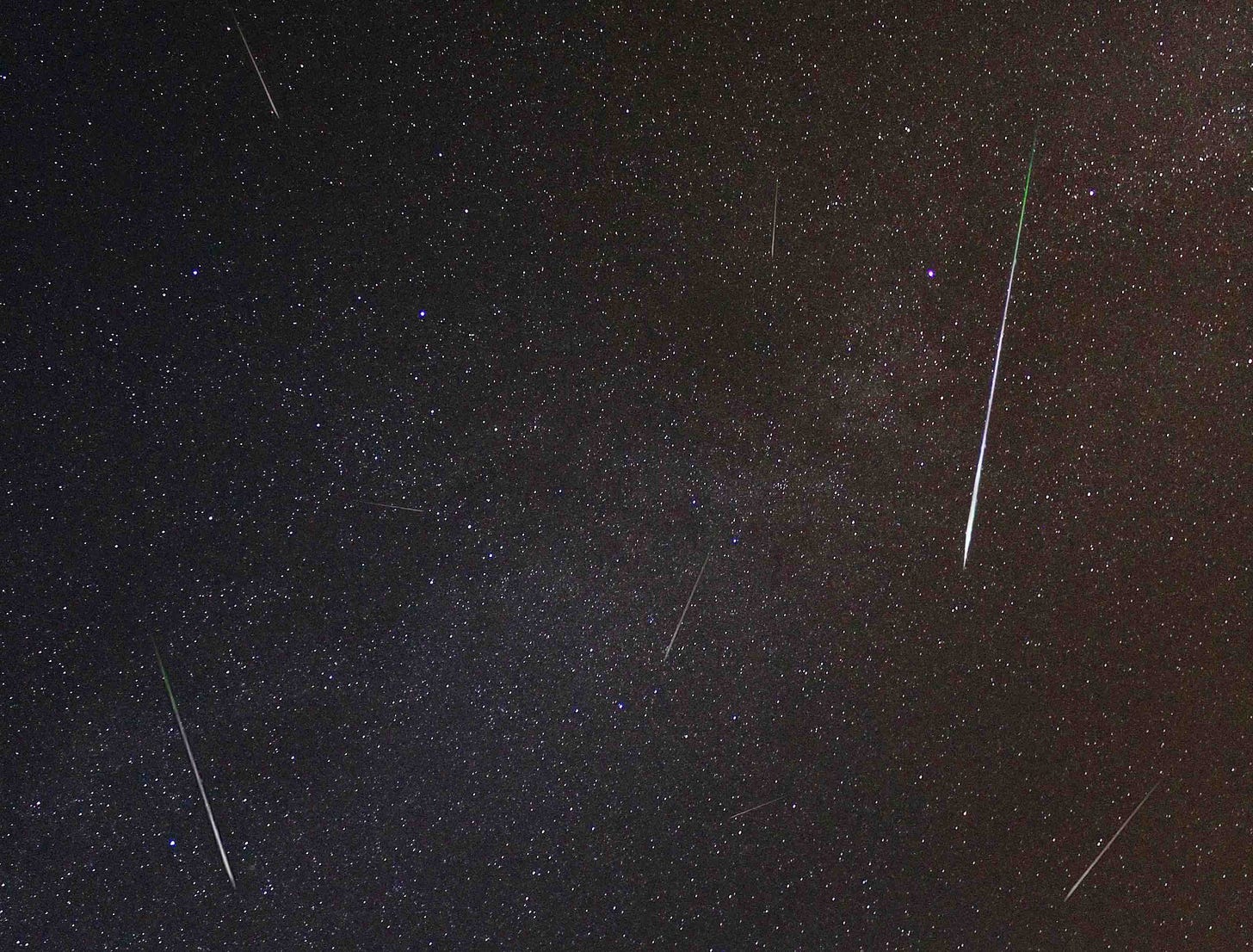
We had a great view of the Perseids last summer when Ed, Rach and Daisy were in town – we lay on the gravel watching bright streaks racing across the night sky.
The showers of light can be seen from mid-July until late August, but this year’s peak viewing of August 11th coincided with the full, sturgeon moon and so the moonlight made the meteors much harder to see.
I hadn’t realised, but in space they’re known as meteoroids, flying through the earth’s atmosphere they are meteors, and the few big enough to make it to earth are called meteorites. So now you know.
But that doesn’t matter in the slightest: it wasn’t the Perseid meteor shower at all.
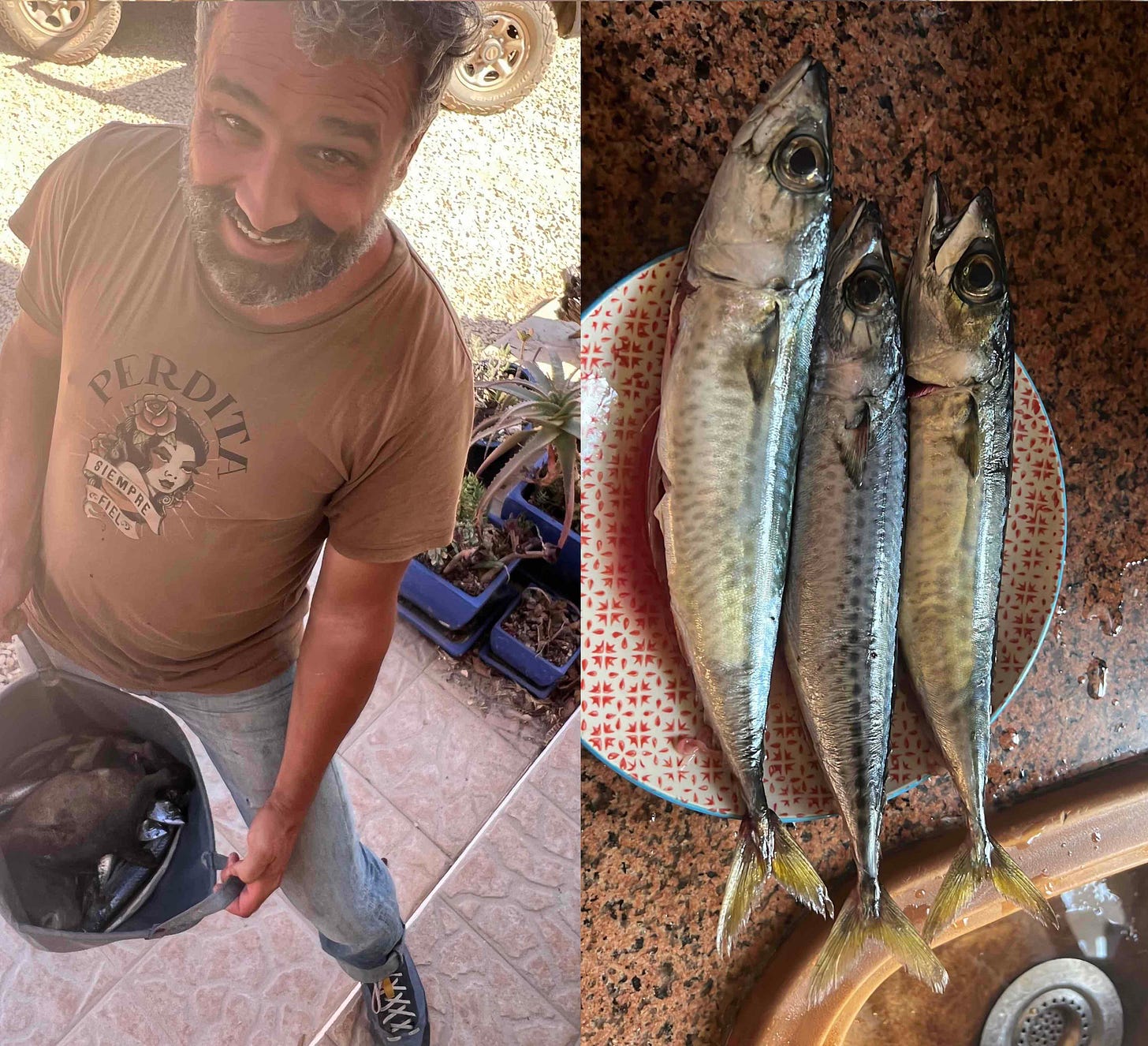
Had I thought for a second, or perhaps drunk a little less wine, I would have been able to assess that Chris was facing south, and Perseus is in the east at that time of night at this time of year.
As it turned out, the accompanying thunder and big drops of rain proved his point and settled the argument quite nicely.
I made a half-hearted effort to put a beach umbrella over a topless Siouxsie the Suzuki and then went to bed.
Judging from the water sloshing around in the car’s cup holders the next morning the umbrella clearly didn’t last long in the face of an unexpected, unseasonal front which swept in from the sea.
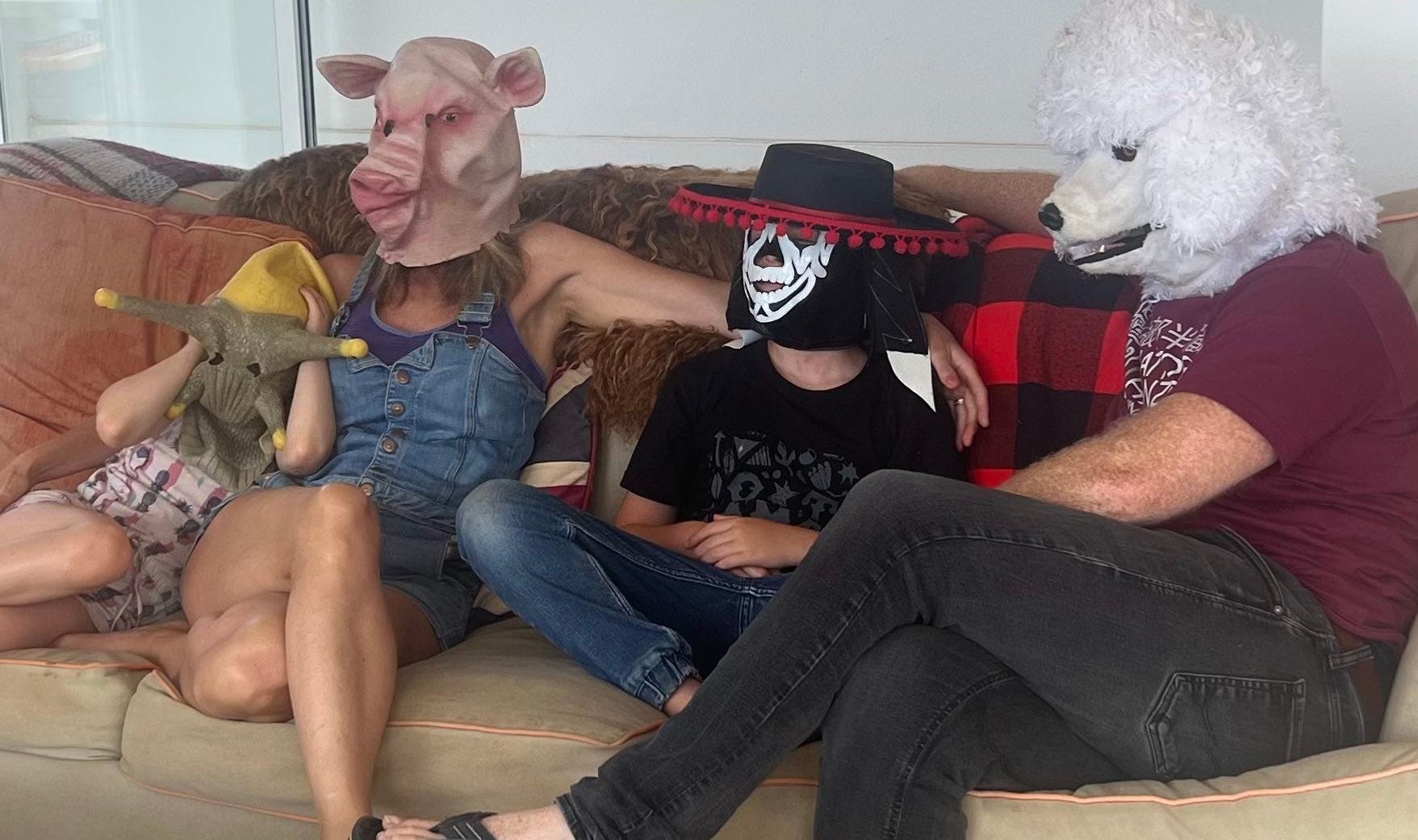
My reason for not hearing the huge explosion around 5.30am was something to do with the aforementioned wine, but Chris and family were in their campervan at the top of the hill and apparently it sounded like lightning had struck just outside their front door.
In fact, the very, very frightening thunderbolt and lightning obliterated an ancient cork oak tree about 5km from us as the crow flies...and we know that because it hit our friends’ land and caused quite a commotion.
Vera and Joep breed beautiful Lusitanian horses and are also building tourist apartments for buyers and anyone wanting a horse-filled holiday with a stunning view of the Alentejo countryside.
Their tree which was perhaps a hundred years old split down the middle and exploded, sending huge fragments of branch and bark as far as 50m away.
The electrical surge entered their power system, frying sockets, blowing lightbulbs and firing the door clean off their junction box.
The horses stayed out of trouble and apparently were barely phased by it the following day, but the surprising thing was the tree wasn’t on the top of the hill, but was quite deep in the broad valley.
I’d always thought it’s the highest point where lightning strikes, or that something metal – like the towering rebar waiting to reinforce concrete on their hilltop construction site would attract the most electrical attention.
But it seems not: perhaps it was the moisture in the valley or the tree, and the quality earthing that comes from cork oak roots which spread far further down and out than the branches go up.
You may know that you’re not supposed to stand under a tree in an electrical storm...but having seen the photos – and the debris – we certainly never will!
The rain was a short but welcome respite amid the drought: a reminder that it does sometimes rain here and perhaps the ever shallowing lake might one day make use of the overflow we built for it.
This week’s water woe involved “finding” another section of the water pipe that links the borehole and the tank while the builders started excavating for the pool.
I know I’ve come a long way when that no longer sends me into a panic and it was all resolved in minutes...and it’s great to see the construction work really starting to get underway.




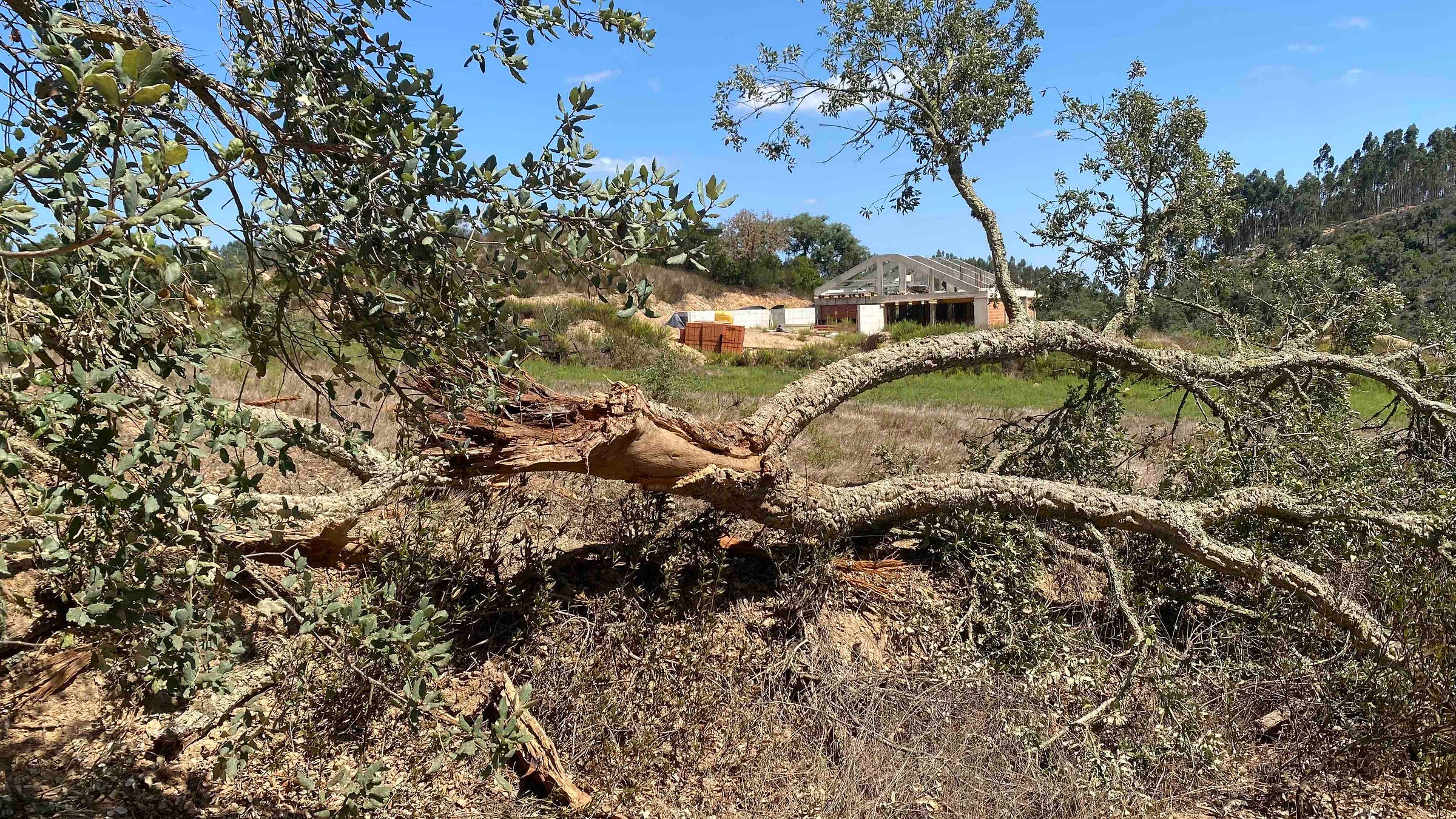
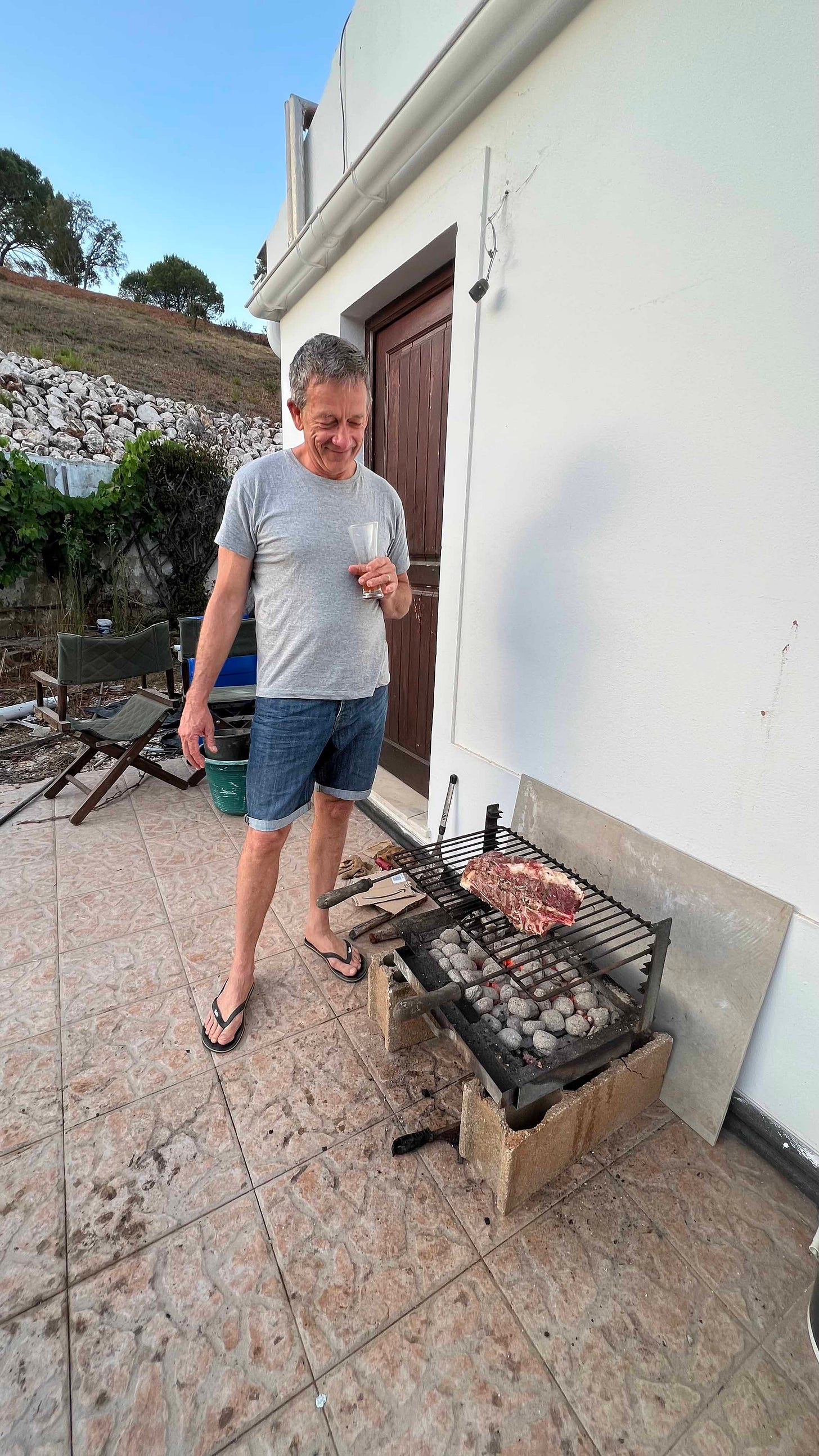

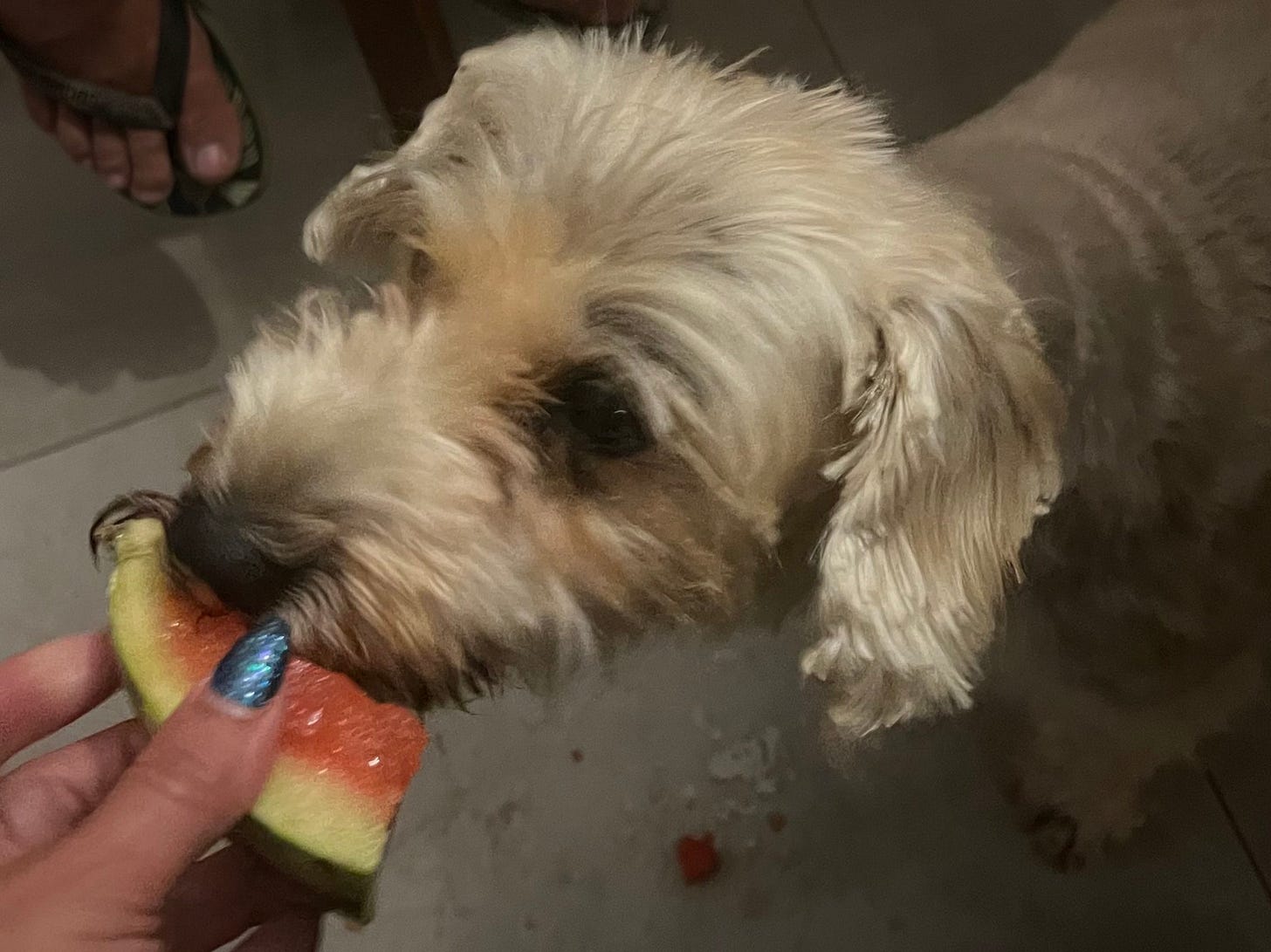
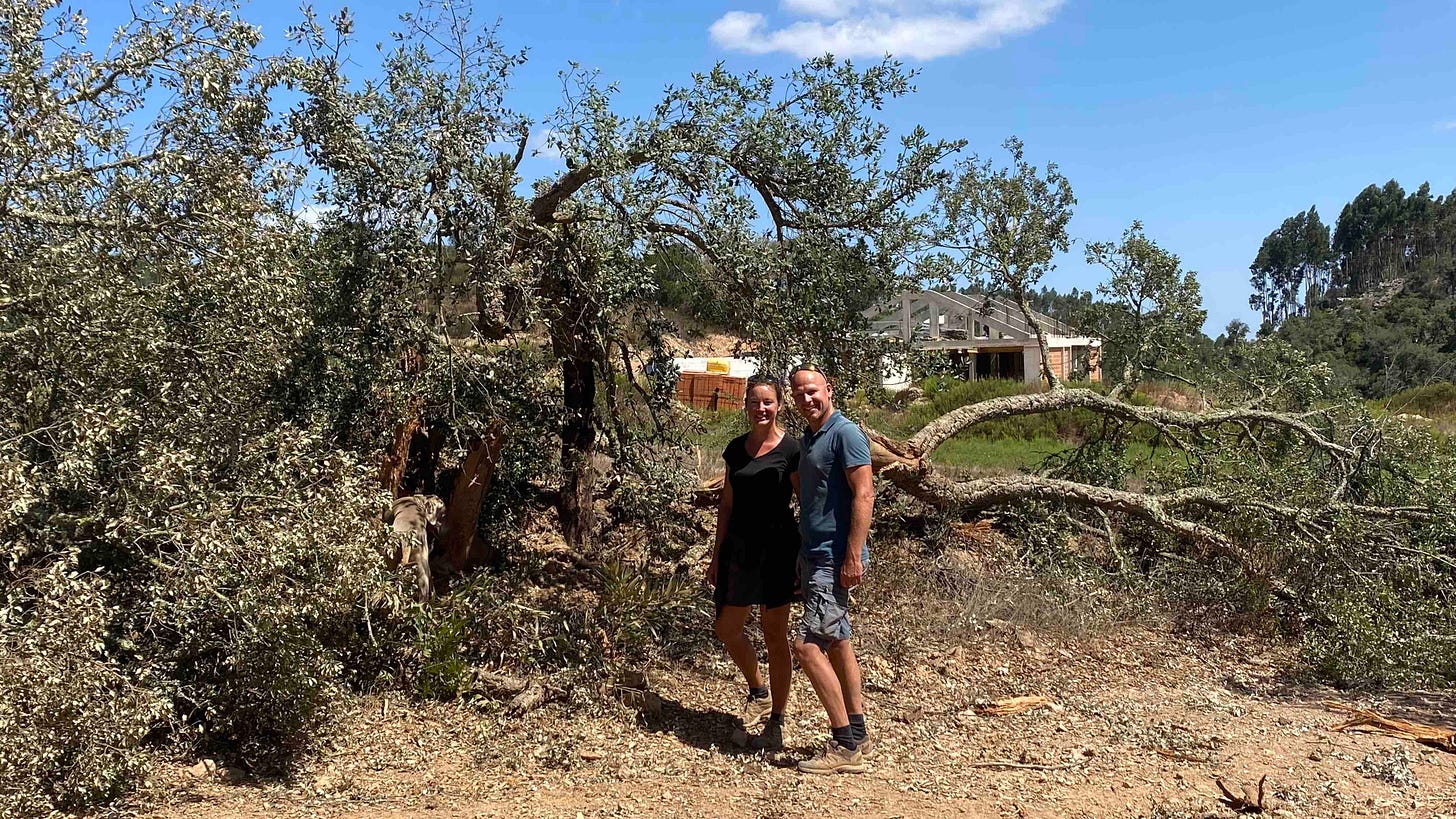


We have such summer storms in coastal Massachusetts, but 90% of the time the lightning shows in sheets across the sky. However, when the occasional grounder happens it's dramatic. A hit on the nearby Old North church steeple in 2019 blew out the PA and a very expensive microphone but the steeple won't be repaired until next year, if it last that long in the wind gusts which occasionally shake and threaten to further denude the 80ft maple that's about 3metres from the house...
Ah, Oakes & Braiis. We could probably play the do you know….game too!
I’m glad everyone is safe after that lightning strike. This summer could do with being a little less dramatic.